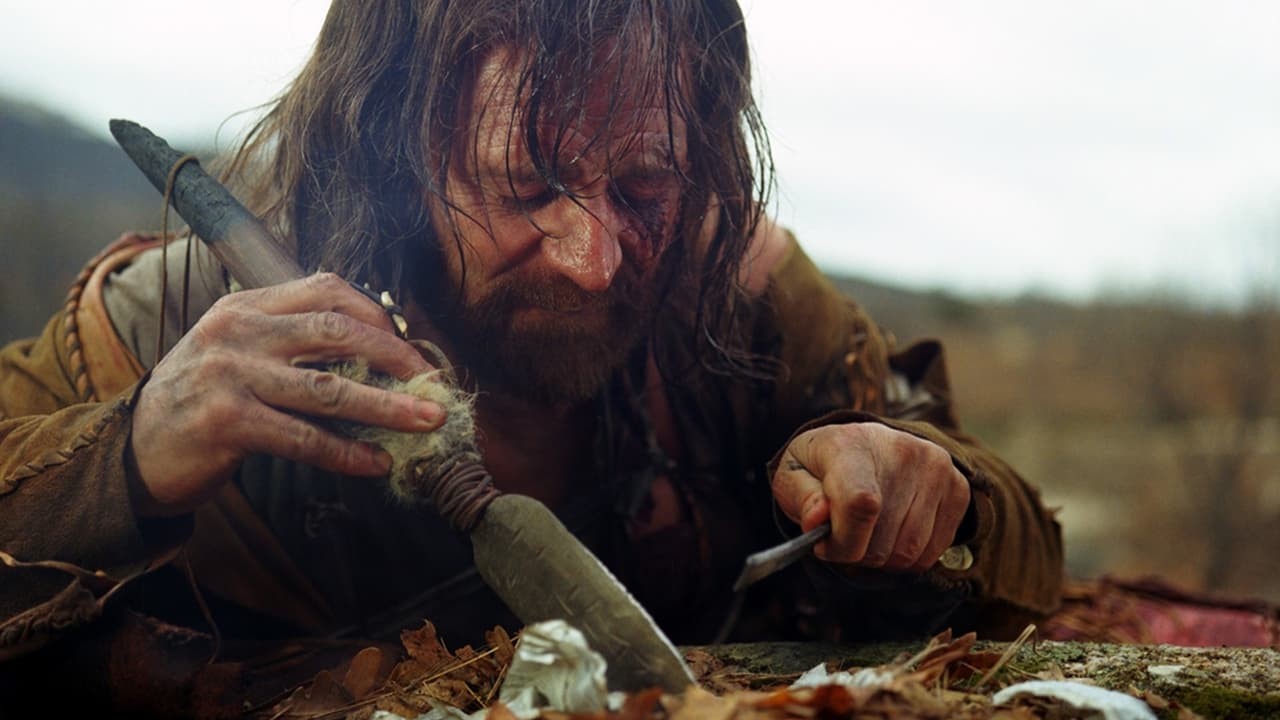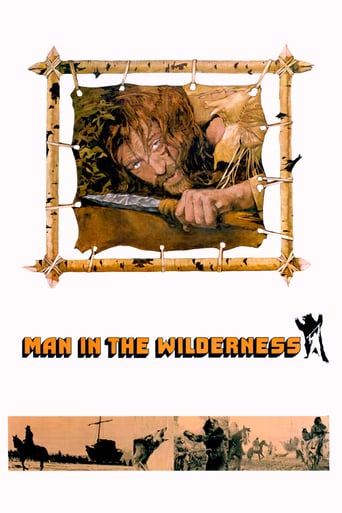Mjeteconer
Just perfect...
Stellead
Don't listen to the Hype. It's awful
Yash Wade
Close shines in drama with strong language, adult themes.
Spikeopath
Man in the Wilderness is directed by Richard C. Sarafian and written by Jack DeWitt. It stars Richard Harris, John Huston, Prunella Ransome, Percy Herbert, Henry Wilcoxon, Norman Rossington and Dennis Waterman. Music is by Johnny Harris and cinematography by Gerry Fisher."1820. The Captain Henry Expedition has completed two years of fur trapping in the unexplored Northwest territory. Determined to reach the Missouri River before the winter snows, the trappers and their boat, towed by 22 mules, struggled through the wilderness. Once on the Missouri they could sail south to the trading posts and sell their precious cargo. What occurred on this expedition is historically true."He was left for dead. He would not forget. Essentially, Man in the Wilderness is the redemptive tale of Zachary Bass (Harris). Left for dead by his unfeeling Captain (Huston) after being savaged by a grizzly bear, Bass survives the wilds of nature and the threat of man with revenge firmly on his mind. But as he recuperates and adjusts to the spiritualisation that the surrounds brings him, he looks back at his life and beliefs.It is undeniably a very slow picture, with dialogue appropriately in short supply, but the atmosphere created is perfect for the unfolding events. Strikingly the film also has a surreal quality that really cloaks the story with considerable impact, where deft touches of imagery land firmly in the conscious. The makers slot in some "bloody" moments, backed with tension, such as the well constructed sequences involving the bear attack and a time when Bass has to scare away two snarling wolves so he "also" can feast off of a stricken Bison. The presence of Indian attacks is handled with care by the director, and in fact helps the finale get away with the expected outcome. While strong moments such as two separate incidents involving rabbits really show the makers to have the best of intentions to tell a valid and interesting story. Especially when it's scenes of just Bass and nature at war.Narratively, however, it is a bit hit and miss. The pertinent question of faith and the use of flashbacks are an uneasy alliance, mostly because the former drapes the film in predictability, and the latter takes you out of the whole "man in the wilderness" struggle that Bass is luring us into. It renders the film far from flawless which is a shame because it has much to recommend a viewing. The Almería, Andalucía location is used to good effect to pass as the Northwest of America, where quite often Gerry Fisher's photography neatly shifts between beauty and the harshness of mother nature. Harris could do this type of role in his sleep, he isn't asked to stretch himself but still leaves a very favourable impression. Huston is up to scratch, but again he doesn't have to do much, while everybody else are giving performances that any other working actor of the time could have given.A movie of rewards and frustrations for sure, and it's no Jeremiah Johnson, but this is definitely worth a spin for anyone interested in the "Man Vs Nature" sub-genre of period films. 7/10
Jeff (actionrating.com)
See it – This one caught my attention in the opening scene with the big wooden boat being wheeled through the forest. Yes, this is technically a western, but the story takes place in 1820, so it's almost a "colonial era" western. The film stars Richard Harris in his usual stark role as a coarse ruffian. The aforementioned boat is being pulled across the mountains to the Missouri River. But when Harris' character is badly wounded, his fellow trappers leave him behind to die. He must survive on his own in the wilderness. There's not much dialogue by Harris in this film, and it reminded me a lot of "Jeremiah Johnson." There's a great Indian battle with the trappers using the boat as a fort. And there is a very unique ending. Not a twist per se', just not the ending you would expect.
dfgrayb
This film is ostensibly about a man (Richard Harris) who is left for dead by the leader of his expedition into the Northwest Territory in early 1820. As other reviewers have pointed out, there actually was a man mauled by a grizzly who managed to survive in much the way that Richard Harris does in the film. In this respect, it is based upon a true story.This film actually has only three main characters: Zach Bass (Harris), the expedition leader (John Huston), and the Wilderness. The photography is stunning. And the Zach Bass theme is beautiful and haunting. The film is full of action and excitement, as revenge stories usually are. Bass survives by his courage, by his strength, and by resourcefulness.And on that basis alone, this film is an enjoyable movie experience.But this movie exists on an additional plane that moves it from being just a great action movie to instead being a great film.The movie it is most like is the John Wayne/John Ford film The Searchers. In that movie, John Wayne's search for his niece is actually his search for inner peace, which he finds by not seeking revenge but, instead, by finding his capacity for love and compassion.The "Wilderness" in this film is actually the wilderness in Zach Bass' mind--memories of a life full of regret and loss. As he works his way back to Huston to exact his revenge, he actually is working his way to a better mind, which by the end of the film is no longer a wilderness. It is, instead, a place of love, with, finally, clarity of purpose. The film is almost flawless in its execution. It is beautiful, moving, exciting, and touching. There is very little "dialogue" because the wilderness has its own richness of dialogue. Richard Harris is a fine actor. This is his best film, in my opinion.I first saw Man in the Wilderness almost 40 years ago. And I have allowed myself the pleasure of its company every few years since. And I will for many more years.
FightingWesterner
Richard Harris is horribly mauled by a grizzly bear and left to die in the primeval forest of 1820's America, by trapping expedition captain John Huston. The injured Harris is forced to go to extraordinary lengths in order to survive and catch up with the rest of his party.A very offbeat, handsomely produced outdoor adventure, Man In The Wilderness is a story that's told primarily in pictures, with very minimal dialog. This moody, sometimes cerebral film might not be for everyone, though others will find it quite satisfying.Richard Harris delivers a great performance, despite the fact that the script only allows him to speak five times during the movie, three of which were near the end. He's forced to convey emotions mainly through body and facial expression.Some favorite scenes are when the trappers are pinned down by the weather and begin to imagine a vengeful Harris, coming out of the wilderness to get them, and of course the fascinating climax and finale.The film's basic premise was borrowed four years later, in the bad drive-in movie Apache Blood. That film is not recommended, whereas this would make a pretty good double-bill with A Man Called Horse or Jeremiah Johnson.

